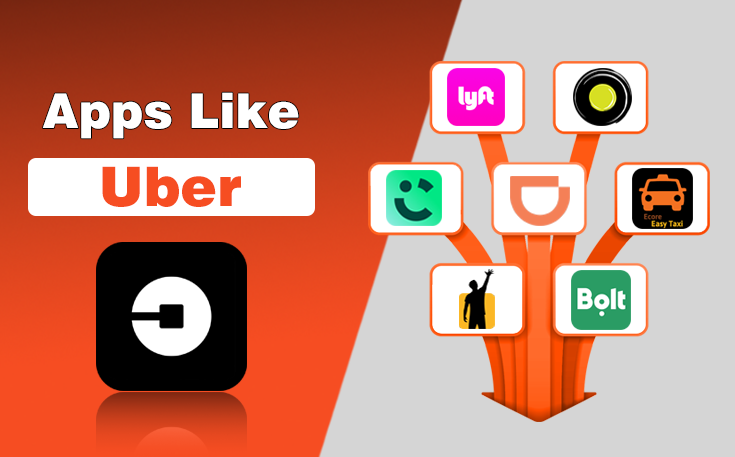I know how frustrating it used to be to turn a mobile app idea into reality. I have been there too when I sketched wireframes, waited for developers, burned through cash, and still did not see anything usable for weeks or even months. It felt slow, expensive, and honestly, discouraging.
But 2025 has completely flipped the script. Today, you can take an idea in the morning and have a working mobile app ready by evening, without endless coding marathons, and no sky-high development bills. The rise of rapid prototyping and deployment platforms has made building apps faster and easier than ever.
In this guide, I have mentioned the top 10 best platforms for rapid prototyping and deployment of mobile apps in 2025.
Platforms for Rapid Prototyping and Deployment of Mobile Apps
Whether you are a solo founder, designer, dev, or a startup racing against time, this list is for you. Here are the top 10 platforms for rapid prototyping and deployment of mobile apps that are absolutely crushing it this year, and helping teams ship apps faster than ever before.
Let’s kick things off with the one that’s making serious noise across the dev world.
1. Rocket.new – Rapid App Generation from Figma or Prompts
If you are looking for a tool that feels like magic, Rocket.new might just be it.
Built by the folks at DhiWise, Rocket.new is hands down one of the fastest, smartest ways to turn your mobile app idea into real, working code. You just connect your Figma file (or even describe your idea with text), and Rocket handles the rest. Flutter code, clean components, proper breakpoints, and assets optimized are all key aspects of this platform.
It isn’t one of those tools that gives you a “starter” template. This gives you ready-to-deploy, developer-grade code that’s clean and maintainable.
Why people love Rocket.new:
- Converts Figma designs into Flutter apps (yep, the real thing)
- Understands reusable components automatically
- Optimizes your images, fonts, and icons for mobile
- Let’s you preview your app before you export
- Direct export to GitHub — no extra setup
Rocket.new doesn’t just make app building faster. It makes it fun. It is a significant part of the growing movement around vibe coding, where creativity and code flow together seamlessly. Thus, developers can build apps with intuition, speed, and joy.
With this platform, you will feel like a one-person app army regardless of your role, whether you are a designer, independent developer, or startup founder.

2. FlutterFlow – Visual Building with Flutter Brains
Next up is FlutterFlow, a long-time favorite that’s only gotten better in 2025.
FlutterFlow gives you a visual way to build beautiful mobile apps with the power of Flutter under the hood. Think drag-and-drop simplicity, combined with real code output and serious control.
What’s cool about it:
- Real-time app previews as you build
- Built-in Firebase support (for things like auth and databases)
- Add custom Dart code when you need it
- One-click deploy to iOS/Android stores
If you love the idea of working visually but still want to tap into developer power, FlutterFlow is a solid choice.

3. Draftbit – Built for Devs Who Want Flexibility
Draftbit is another option that frequently appears in conversations, particularly among developers who want to start visually but still retain control over their code.
It uses React Native, so you can build real, native mobile apps with full flexibility to tweak and export code at any time.
Why devs swear by it:
- 100% editable code (export whenever you want)
- Integrates with tons of data sources — REST APIs, Supabase, Airtable, etc.
- Built-in logic and navigation tools
- Great for MVPs, client projects, or internal tools
Draftbit strikes a sweet balance: visual when you want it, hands-on when you need it.

4. Bravo Studio – Turn Your Figma Designs into Real Apps
If you’re a designer and already live inside Figma, Bravo Studio might be your new best friend.
You design in Figma, and Bravo takes those designs and turns them into actual working apps, complete with real-time data, animations, and logic.
Highlights:
- Connects to real-time data sources (Airtable, Supabase, Xano, etc.)
- Adds custom actions for things like navigation or user inputs
- Direct publishing to iOS and Android
It’s kind of like putting rocket boosters on your Figma files. You can have an app that looks and functions just like your prototype, live in the App Store in no time.

5. Glide – Build Apps from Spreadsheets
Imagine you have got a spreadsheet with some user data, tasks, or inventory, and you want to turn it into a working app. That’s exactly what Glide lets you do.
It’s one of the fastest ways to build simple mobile apps, especially for internal tools or MVPs.
What’s new in 2025:
- Glide now uses Artificial Intelligence to help you build layouts from your data
- Better logic builder for conditional flows
- Offline mode support for better mobile performance
If you’ve got a non-technical team that needs a tool now, Glide is fast, simple, and surprisingly powerful.

6. Adalo – No-Code App Building with Style
Adalo is great for people who wish to create native apps without writing a single line of code while focusing on design and user experience.
It has expanded over time to allow payments, user authentication, and custom logic, all while maintaining a delightfully simple UI.
Perks include:
- A marketplace full of plug-and-play components
- Stripe integration for payments or subscriptions
- One-click publish to mobile app stores
If you have an idea for a small business app, community platform, or side hustle, Adalo lets you build something polished quickly.

7. Backendless – Build the Backend and Frontend in One
While most platforms focus on frontends, Backendless has carved out a niche by giving you a full backend builder, plus visual frontend tools.
You can create databases, APIs, user auth, file storage, and real-time chat, all without writing backend code.
Why it stands out:
- Drag-and-drop logic builder (like a flowchart)
- Real-time database + push notifications
- Works great for scalable MVPs or chat apps
If you’re looking to go beyond just UI and build the whole stack visually, Backendless is a strong contender.

8. SAP Build Apps (formerly Appgyver) – Enterprise-Ready No-Code
This one’s for the enterprise folks. SAP Build Apps (formerly Appgyver) brings serious muscle to the no-code world.
It’s one of the most customizable tools available that allows you to build complex workflows, connect to enterprise systems, and deliver high-performance applications.
Notable features:
- Connects to SAP, Salesforce, OData, and more
- Handles offline use cases well
- Great for regulated industries or mission-critical apps
If you’re in fintech, healthcare, or logistics, this is one of the few tools that can handle the complexity.

9. OutSystems – Low-Code Platform for Big Ambitions
OutSystems is a full-featured low-code platform that’s loved by enterprises and dev teams working on large, complex mobile apps.
You get visual app building, code extensibility, built-in DevOps, and even AI assistance.
In 2025, it’s offering:
- AI features to auto-generate logic or catch bugs
- CI/CD workflows out of the box
- True cross-platform development
If your app is more than just an MVP and needs to scale or integrate with other systems, OutSystems is a viable option worth considering.

10. Kodika – iOS App Building for Designers
Last but not least is Kodika. It a hidden gem that’s extremely popular among iOS-focused developers.
If you’re used to designing in Sketch or Figma and want to build an iOS app without diving into Xcode, Kodika has your back. And now, in 2025, Android support is also in beta.
Why it’s fun to use:
- Native Swift-based apps that follow Apple’s best practices
- Export code to Xcode if you want to go deeper
- Tons of pre-built components and animations
Perfect for launching an MVP, side project, or client app — especially if you’re design-first.

So… Which One Should You Choose?
Here’s the deal: there’s no one-size-fits-all solution. But knowing your priorities can help you pick the right platform:
- For lightning-fast code from Figma, opt for Rocket.new.
- If you’re into drag-and-drop with real code, try FlutterFlow or Draftbit.
- If you’re more on the design side, Bravo Studio and Kodika will feel like a natural fit.
- For internal tools or quick MVPs, Glide or Adalo are perfect.
- Need a full backend too? Check out Backendless.
- Working in an enterprise setting? SAP Build Apps or OutSystems are your friends.
Final Thoughts
2025 Isn’t Just About Speed — It’s About What You Do With It
We are entering an era where the leap from idea to fully functional mobile app can happen in a matter of hours, not months. Whether you’re an indie maker, a startup founder, or part of a large enterprise, the barriers have never been lower.
Tools like Rocket.new aren’t just changing the pace. They are reshaping what’s possible. You’ve got the vision. Now you’ve got the platforms to match.
So here’s the real question:
What’s stopping you from launching your next big thing today?
Need custom app with amazing features?
Get a Quote




